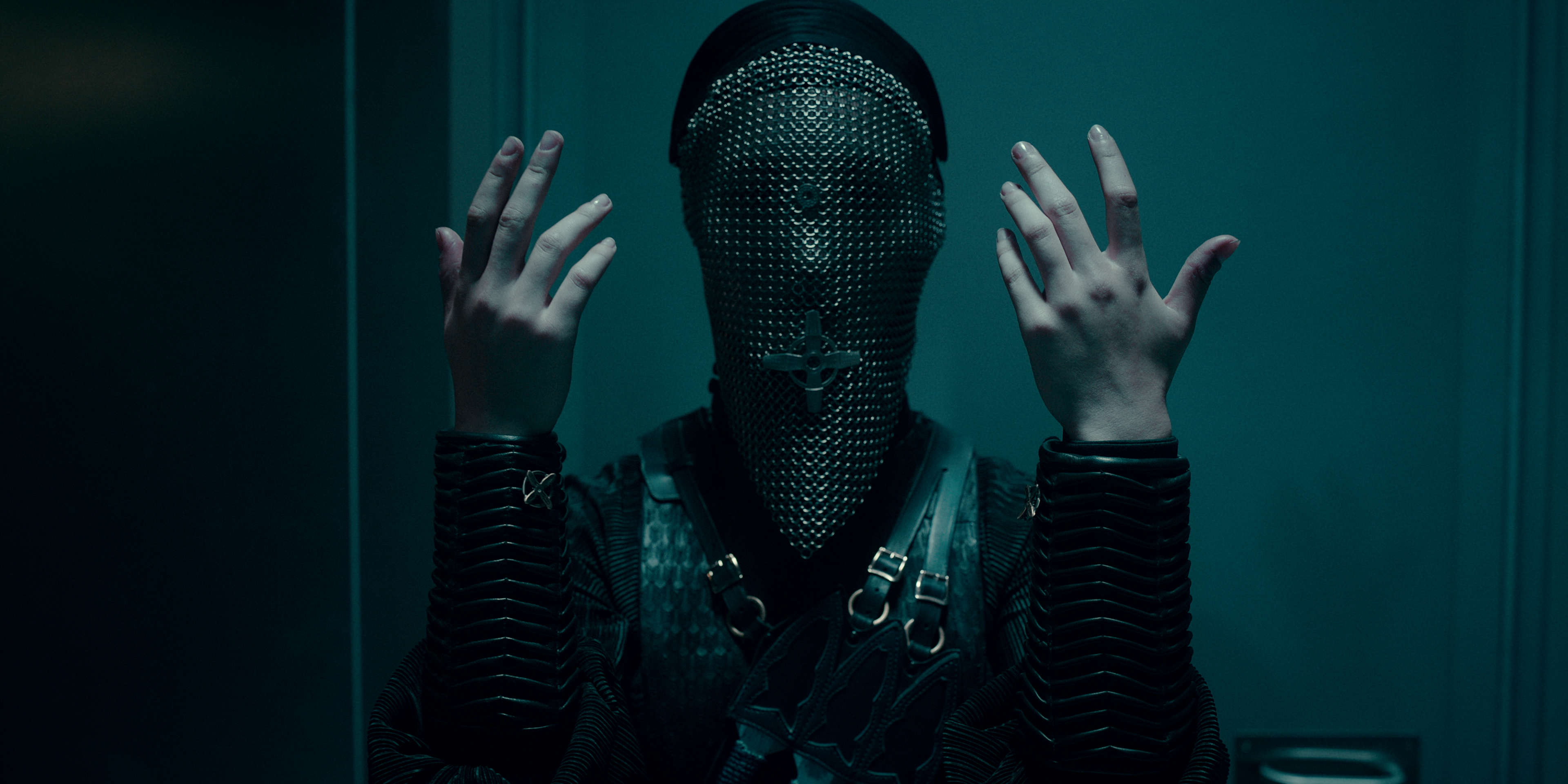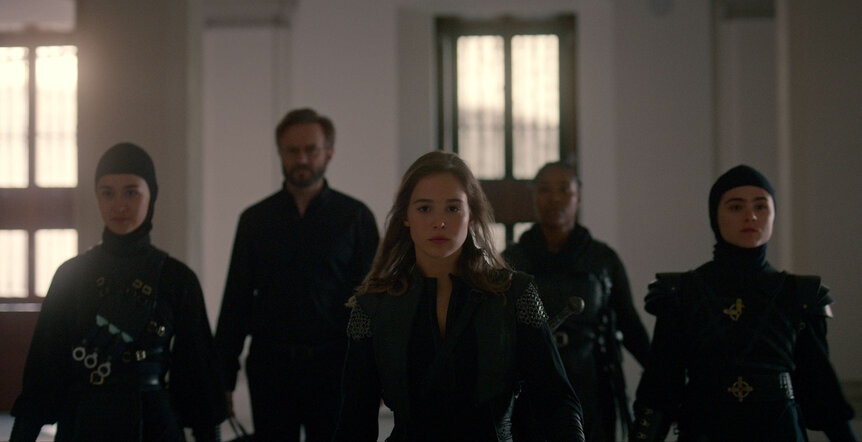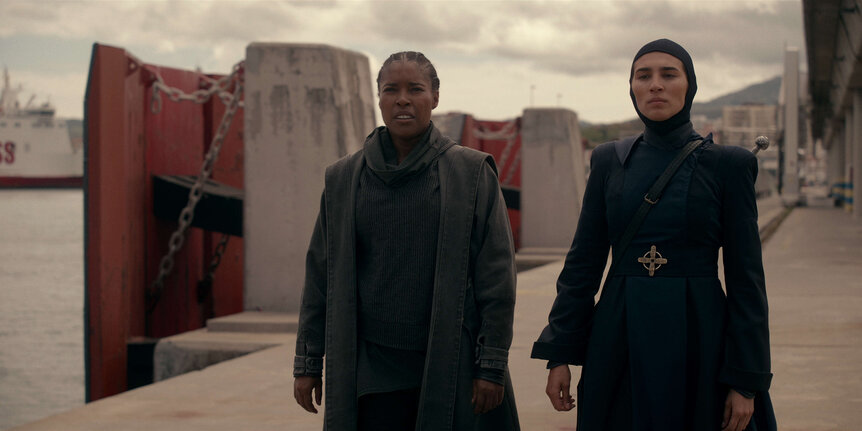Create a free profile to get unlimited access to exclusive videos, sweepstakes, and more!
Netflix's Warrior Nun and what it means to weaponize women of faith

Television — genre or otherwise — sometimes struggles with presenting stories about people of faith. Especially when those people are women. Too often, such female characters are presented as silent observers of the male-dominated institutions they serve, or as victims of those same structures, whose voices are silenced by centuries of tradition and oppression.
This is precisely why Netflix's Warrior Nun feels like such a breath of fresh air.
Much of the female spiritual experience in popular culture is about being passive, where events are depicted as happening to someone and there is little illusion of agency or choice involved. Women are often present seemingly only to suffer, enduring the sorts of physical and mental horrors that will be hailed as triumphs of strength and bravery — but only after they're dead. Many stories of Catholic female saints are as full of gory embellishments about the way these women died – beheadings, mutilations, various flavors of torture — as they are about the choices they made while they were alive.
Warrior Nun not only gives its female characters the power to fight demons but to make their own choices and reclaim their own faith stories. Given how often women who seek power or knowledge in stories like this turn out to be cautionary tales – temptresses, harlots, or the reason mankind ends up fallen in the first place — this is definitely something of a radical shift.
Centered on a group known as the Order of the Cruciform Sword (or OCS for short), the show tells the story of a conclave of women with a divinely inspired mission to fight demons and protect humanity from darkness. Watching religious ladies beat the crap out of monsters is a rare — and enjoyable — enough premise to make virtually any series worth watching, but Warrior Nun takes things a step further, allowing those same women to be active participants in shaping and expressing their faith.
The series is inspired by Ben Dunn's Warrior Nun Areala manga series and builds a complex mythology around the comics' titular character and the legacy of women who came after her, elite Sister Warriors sworn to help the Warrior Nun battle supernatural and demonic forces. These feminist disciples work, live, and fight together, but they are by no means a monolith. Some of them have taken religious vows, others have not. Some believe in the hierarchal order of the Catholic Church; others balk at the restrictive — and often patriarchal — structure it frequently imposes. But all express a sincere faith in something greater than themselves – whether that something is God, the Church, their order, or each other. (And often it's all of the above.)
When a young orphan named Ava dies, her corpse is forcibly revived by the insertion of a divine object known as the Halo into her back. This artifact gives her powerful new abilities and advanced healing, in addition to the ability to spot and slay demons with the help of a special Divinium sword. It also, in one of the series' most emotionally complex twists, allows Ava — a former quadriplegic — to walk again, compounding one miracle on top of another. For a character who is hardly what anyone would call devout, this is kind of a lot to deal with. But part of the reason Warrior Nun is so compelling is that it understands there's no one singular way for her to process what she's going through. Her reckoning with the existence of a larger spiritual world happens alongside her embrace of simple joys like running and fighting, as well as her first glimpses of the world outside the convent in which she was raised.
Ava's joined by several other complicated heroines: Sister Beatrice, a martial arts badass who took vows and joined the OCS after being essentially abandoned by her parents. (The show strongly implies that this happened because Beatrice is also queer.) There's Shotgun Mary, one of the order's less traditionally devout members who loves weapons and is more likely to see God's grace in the world of his creations than within the walls of a religious house. And there's Sister Lilith, a warrior who's been training for all her life to bear the Halo, and wrestles with the rage inherent in the idea that a group of men will determine whether she is worthy of it.
These are women who are not perfect. They are all misfits in some form or other, but that's part of what makes their faith feel real — like something that could and does exist in the same world we inhabit. (After all, the saints whose stories we remember today were all also real people, who faced trials and had doubts long before they were ever martyred.)
Rather than remain in the rigidly strict hierarchies that the patriarchal structures of the Church itself tend to favor; the women of the Cruciform Sword ask questions. They uplift and empathize with each other. They fight together. They even fight each other over the course of the series, trying to find the best path forward for their order and the mission they serve. Their faith is fluid and responsive — not in terms of what they believe in or don't, but the way it's lived and reflected through their everyday lives.
Like many religious heroines before her, Ava initially isn't given much of a choice about whether she'd like to become the champion of an order of battle nuns, nor is she asked if she'd like to wear an ancient artifact in her body and dodge demons for the rest of her life. But the show does give her plenty of space to reckon with those unasked-for gifts, enough so that when she does choose OCS — or, more specifically, choose the women of OCS — her decision is a fully informed one.
By the time Ava decides to fight alongside these sisters she's never asked for but now cares about, she's tried to run away, to appeal to the wisdom of science, even — finally — to pray about it. But when she ultimately chooses to embrace her new lineage, it's because of this explicitly feminine bond and a belief that they, together, can protect the world. Even those that don't believe as they do.
Warrior Nun is so gripping to watch because of this deft way it intermixes issues of faith and feminism. It never treats the idea of a squadron of fighting nuns with superpowers as a joke, instead, it takes the idea that women are active participants in their own faith — and lives — seriously, and lets them make their own choices. About what to believe in, and what to fight for. As a show, Warrior Nun is deeply interested in issues of faith, but it's also not here to tell anyone what to believe. Like Ava and the other women in the OCS, viewers are encouraged to make their own choices.
















